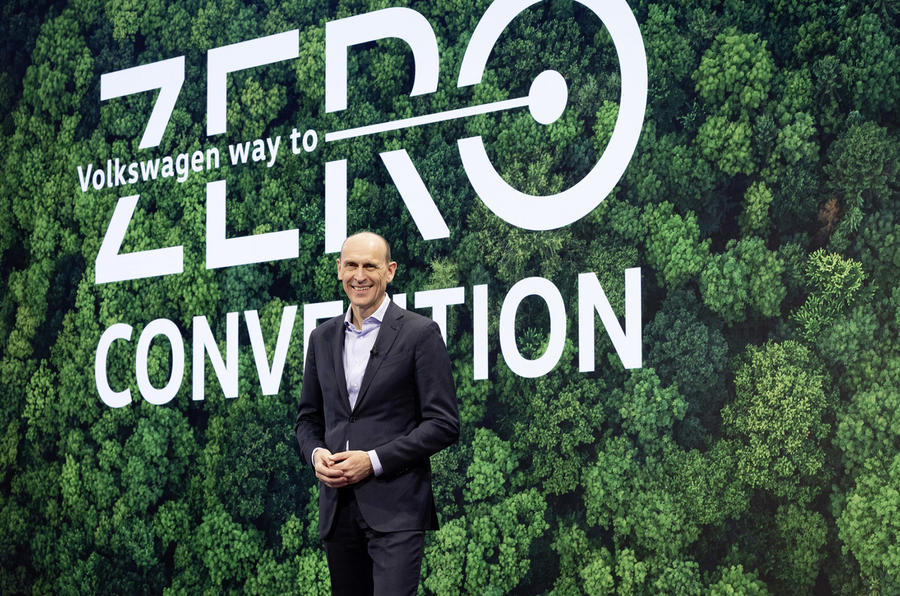Volkswagen has detailed how it plans to become net carbon neutral by 2050, including a major investment in renewable technology and a commitment to cut CO2 emissions per vehicle in Europe by 40% by the end of the decade.
VW outlined the decarbonisation roadmap during its first Way to Zero Convention. The firm is focusing on developing its new range of ID-branded electric vehicles, and CEO Ralf Brandstätter said it would now push to reduce carbon emissions from its production process.
“Our big electric offensive was just the start,” said Brandstätter. “We’re taking a holistic approach to decarbonisation: from production through service life to recycling.”
Brandstätter added: “With size and success comes responsibility. In 2020, the Volkswagen Group’s global carbon footprint was 369 million tonnes. If Volkswagen were a country, it would rank alongside the UK as the 10th-largest emitter.”
VW has set a target of achieving a 40% reduction in CO2 emissions per vehicle in Europe by 2040 compared with 2018 levels, which the firm says equates to around 17 tonnes less CO2.
To meet the climate targets introduced in the European Green Deal, Brandstätter said that the brand needs to increase its share of EV sales from 35% to 55% by 2030, which translates to an additional 300,000 units per year. But the firm has set itself the target of 70% of European sales being electric by that date, along with more than 50% of sales in the US and China.
To boost EV sales, VW will release at least one new electric ID model every year. Brandstatter added that "emobility has won, and there is no turning back. Great news for the planet."
VW says it is working to decarbonise its production and supply chains and has pledged that, by 2030, all its plants except for those in China will be powered purely by ‘green’ electricity. It is also introducing more sustainable components into the construction of its ID vehicles, and says that CO2 emissions will now be a key criterion when awarding contracts to suppliers.
The firm is also pushing to develop its battery recycling operation, and says that it intends to recycle more than 90% of the raw materials used in its batteries in the future.
In order to ensure that its electric vehicles are as carbon-neutral as possible, VW will fund the construction of several renewable energy projects, including wind farms and solar plants in several regions of Europe. The first project is a solar plant in Tramm-Göthen, Germany, with a capacity of 170 million kilowatt hours per year.











Join the debate
Add your comment
My profession was aerospace engineer, now a businessman.
You are rude and very silly.
My profession was aerospace engineer, now a businessman.
You are rude and very silly.